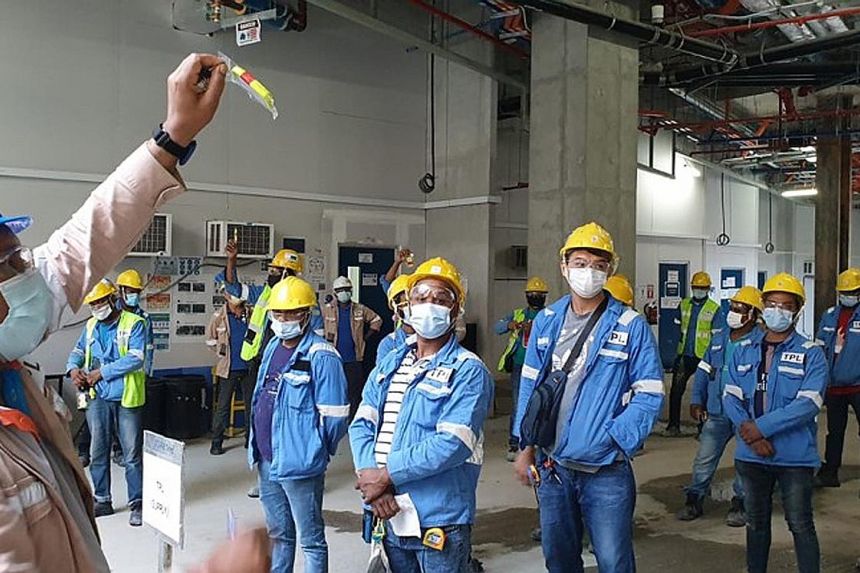In the light of the April 28th, International Workers Memorial Day (IWMD) today, the country’s largest group of unions and a global union federation calls on the Employees Compensation Commission (ECC) to prescribe the coronavirus disease 2019 (COVID-19) as a compensable disease and allow workers afflicted by the disease full access to income loss benefit and other package of services.

The ECC is a government agency mandated by law to provide various services and compensation package to public and private employees and their dependents in the event of work-related illness, injury or death provided they are paying members of the Government Service Insurance System (GSIS) and Social Security System (SSS).
In a letter sent to the board of commissioners, the Associated Labor Unions (ALU) and the Building and Woodworkers International (BWI) urges the ECC “to take the right action in helping members who are afflicted by the coronavirus disease 2019 to have full access to the employees’ compensation program package of services and benefits by way of prescribing COVID-19 a compensable occupational and work-related disease for members across-the-board.”
The International Workers Memorial Day (IWMD) takes place every year around the world on April 28th in remembrance and action for workers who died or killed, injured, disabled and sickened while performing their work.
The ECC compensates any work-connected injury or sickness resulting to disability or death of members. It provides loss of income benefit, temporary and permanent disability benefits, medical benefit, rehabilitation services, carer’ allowance and death benefits.
“More than a year into the declaration of the national state of emergency amid the onslaught of COVID-19, thousands of ECC members in private and public sectors have succumbed to the fury of COVID-19 following their exposure to the virus at the workplace and while performing their work, said Gerard Seno, ALU National Executive Vice President.
“The Filipino workers along with the other workers around world are sending this letter of appeal to ECC in the light of the workers memorial day remembrance hoping that those workers who were ravaged by COVID-19 and those frontline workers who sacrificed their lives for us to live are not forgotten,” said Seno.
Other members may have survived the disease following their work-related exposure, however, the expensive costs of isolation, quarantine, confinement, medication, and various stages of recovery and rehabilitation, and the loss of income generated by these unfortunate circumstances situates the members and their families under great financial stress, said Seno.
However, with the positive step of the Commission prescribing COVID-19 a compensable disease for members across-the-board, the ECC is fairly and effectively extending its comprehensive package of services and benefits to all work- connected contingencies not only to frontline and essential workers but to all compulsory members and their beneficiaries, he said.
Covered by the compensation program are private sector workers in manufacturing, service and agriculture sectors who are compulsory members of the SSS including sea-based overseas Filipino workers and local household service workers.
While government employees who are members of the GSIS includes the members of the military, police, jail management and penology, rescue and firefighters, and coast guard.
“The whole-of-nation approach to build back our economy in the light of COVID-19 pandemic economic and health crises depend largely on the resilience of the workers and their ability to recover from the disease, we are hopeful that the ECC shall dynamically rise and come to the aid of workers by taking the positive step in prescribing COVID-19 as compensable disease for all members,” he added.
So far, the ECC has identified 32 occupational and work-related diseases that were determined compensable under their compensation program. Some of these compensable diseases include malaria, two types of cancer, pneumonia, hernia, asthma, work connected infections, tuberculossis, asbestos-related diseases, and peptic ulcer among others.











More Stories
Pinuno ng Japanese Crime Syndicate, Nalambat ng BI sa Pampanga
Korte, Nagpasok ng ‘Not Guilty’ Plea para kay Teves sa Kasong Illegal Possession of Firearms
Bike Lane Barriers sa EDSA, Tahimik na Inalis — mga Cyclist, Nanganganib!